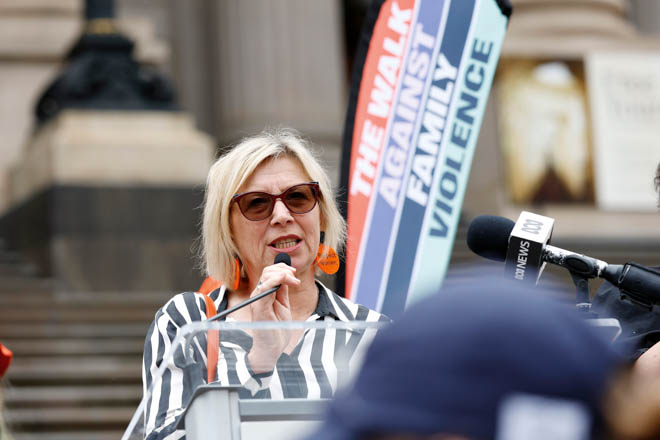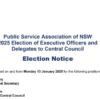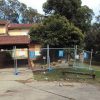The State Government must take domestic and family violence seriously.
NSW has a frightening number of convicted domestic violence offenders walking the streets. In a shocking hangover from the Coalition Government era, courts are more likely now to issue community orders to people convicted of domestic violence offences. Often these offenders receive a fine that doesn’t even reach four figures.
“Numbers of domestic violence convictions are up,” said PSA CPSU NSW President Nicole Jess. “Yet custodial sentences are down. This dates back to 2018, when then-Attorney General Mark Speakman passed the reforms to boost the number of offenders sentenced to supervised community-based orders and reducing the proportion of offenders serving short-term prison sentences.”
Mr Speakman is now the Leader of the Opposition in the NSW Parliament.
In addition to the 2018 reforms, courts during the subsequent pandemic were more likely to impose community orders for offences such as these to reduce the chance of COVID spreading through gaols.
“However, while most restrictions related to COVID have been lifted, this situation has remained and we now have 17,500 convicted domestic violence offenders on the streets. Only half of these are supervised,” said Ms Jess. “The sentencing approach seems to be lingering beyond its use-by date.”
Ms Jess said “only 10 per cent of domestic violence offenders are gaoled, 30 per cent subjected to some form of supervision, and 60 per cent are not supervised”.
A March 2022 report by the NSW Bureau of Crime Statistics and Research (BOCSAR) found that for every 10 additional offenders sentenced to a supervised order under Mr Speakman’s reforms, only four were actively supervised in the community.
BOCSAR data released in 2023 showed domestic violence assaults have increased by 13.5 per cent over the previous five years, and the number of unsupervised community sentences for “DV – assault” offenders increased year-on-year from 2019-20.
According to research by the PSA CPSU NSW, between 2018-19 and 2022-23 the number of defendants convicted with a proven charge increased from 20,686 to 27,512.
Of those convicted of a domestic violence offence in 2022-23,16,442 – or 60 per cent – individuals served their sentence in the community. More than 50 per cent of those serving a sentence in the community were unsupervised, meaning 8428 offenders were, in essence, walking about unchecked.
For 2022-23, almost 68.7 per cent of unsupervised community orders were for 12 months or less. For supervised orders, the figure was 54 per cent.
Instead of custodial sentences, many offenders are fined. Offenders fined for domestic violence increased from 544 in 2019-20 to 866 in 2020-21 and 884 in 2021-22. After the pandemic this fell to 758 in 2022-23.
About 90 per cent of fines for domestic violence in NSW were less than $1000.
“Are fines in any way a deterrent for domestic violence offenders?” said PSA CPSU NSW General Secretary Stewart Little, who said the statistics are a sign of “institutional sexism, where crimes against women and children are being downplayed”.
Mr Little said this lax approach is taking place against a nationwide crisis.
“Every week, a woman in Australia is murdered by a partner or former partner,” he said. “Governments need to send the message that domestic violence is unacceptable. Letting 60 per cent of convicted offenders walk the streets all but unpunished, or fining them less than $1000 is not sending that message. “Nearly a decade ago, Rosie Batty

[pictured right] bravely used the example of the death of her son to expose the scourge of Australia’s appalling rate of violence against women and children. Not only has she since been vilified by fringe political figures such as Mark Latham, she has also seen poorly thought out initiatives such as the lax sentencing laws in NSW fly in the face of her campaign.
“It’s just not on.”
The sentencing crisis comes at a time when gaols have a better capacity to house inmates than they have had in years. The state’s male prison population has recently fallen to around 12,000 inmates, with wings in prisons such as Goulburn and Long Bay mothballed by the State Government.
“There is capacity to protect the community by giving people found guilty of performing violence towards women and children custodial sentences,” said Mr Little. “The prison wings mothballed now can be reopened at a moment’s notice if the State Government wants to send a message that violence towards women and children is not acceptable.”
Incarceration not only keeps offenders away from their partners and other family members, but inmates can undertake programs to reduce their chances of re- offending once their sentences expire.
“There are a number of programs inside NSW correctional facilities aimed at those inmates convicted of domestic and family violence offences,” said PSA CPSU NSW Industrial Officer David Bartle, himself a former Prison Officer.
“Inmates can be placed at centres with High Intensity Program Units where a training package called EQUIPS is undertaken that has specific domestic violence prevention components.
“There are also a range of other courses that address factors that can contribute to domestic violence, such as the Intensive Drug and Alcohol Treatment Program and various literacy, work readiness and educational programs. The programs are delivered by a diverse range of our members including Service and Programs Officers, Psychologists, Education Officers and Custodial Staff including Overseers.”
The programs are available in both private and NSW-run gaols.
“Mr Speakman is no longer the Attorney- General,” said Mr Little. “His replacement, Michael Daley, needs to show some mettle and prove that his government is serious about tackling a nationwide crisis that is killing women and children.
“Too many domestic violence offenders are being spared prison sentences. Too many of them under community orders are walking around unsupervised. And too many are paying three-figure fines.
“There are PSA CPSU NSW members state-wide doing their utmost to protect people from domestic violence. From the police, through to prisons and Community Services. They need to know the State Government takes this issue as seriously as they do.
“They need to know the State Government cares.”

















Leave a Comment
Your email address will not be published. Required fields are marked with *